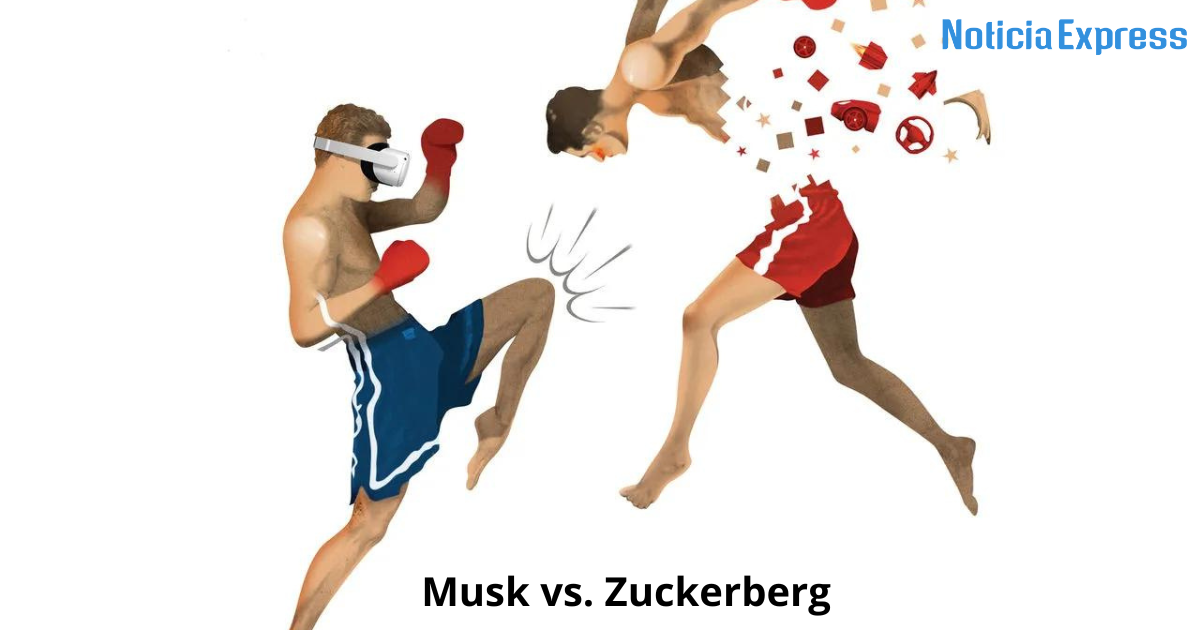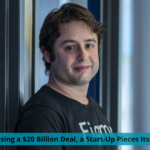Elon Musk and Mark Zuckerberg have long had a schoolyard rivalry, and when it comes to who’s cooler than whom, Mr. Musk typically comes out on top. Mr. Zuckerberg, the co-founder of Facebook and the CEO of the massive social media company Meta, has frequently been written off as an innovator in favor of a hooded nerd.
He has never enjoyed the same level of praise as Mr. Musk for transforming SpaceX into a rocket powerhouse and Tesla into a stallion of the electric vehicle (EV) industry. The catchphrase “move fast and break things,” popularized by Mark Zuckerberg, may have contributed to Facebook’s global success but also allowed detractors to paint the company as a social threat. Mr. Musk, who flaunts his bad-boy persona and is admired for breaking the law, gets away with most of his actions.
The situation between the two was so bad that in June of last year, shortly before Meta debuted Threads, a short-messaging software to rival Musk’s Twitter (now X), Mr. Musk suggested a cage battle with Mr. Zuckerberg. Forget about the fictitious physical altercation. Even back then, in terms of business, Mr. Musk was ahead. The richest man on the planet was him. Despite declining, Tesla’s market worth was more than Meta’s. Revenue growth was more rapid. He could not have given himself a more severe tooth kick since then, though.
Tesla has stunned investors in recent weeks with an earnings presentation fit for a horror show. A judge revoked Mr. Musk’s $56 billion compensation deal from 2018, drastically reducing his net worth. His EVs have had recalls from China to the United States.

In the meantime, Mr. Zuckerberg is punching the air. Meta reported profits on February 1st, showcasing a startling increase in sales and profitability. Its current market valuation of $1.2 trillion is more than twice that of the electric vehicle manufacturer and matches the greatest value that Tesla attained in 2021. To be sure, financial performance may be measured in many ways than just the short term. However, when considering longer-term aspects like how both men manage their companies, interact with customers and shareholders, and handle their own mistakes, it becomes evident that the war is effectively finished. The winner is Zuck.
Commence by examining the management and oversight approaches of the two billionaires to understand the underlying reasons. Advocates of corporate governance express concern about the way each of them governs their companies: Mr. Musk exercises comprehensive control over everyone at Tesla, whereas Mr. Zuckerberg employs a dual-share arrangement that affords him majority control over Meta. However, Mr. Musk’s attentiveness to fellow shareholders has diminished, while Mr. Zuckerberg has increased his focus on them. Consequently, there has been a significant decline in performance.
In 2022, just as Meta’s primary business was slowing down, Mr. Zuckerberg’s 180 degree turn came when shareholders reacted negatively to the way he was squandering their money—as well as his own—on moonshot ventures like the metaverse. He listened to them instead of dismissing them. Since then, he has shifted his focus to increase earnings, reduce expenses, and use the money to support futuristic bets and make investments in artificial intelligence (AI) and the metaverse that will enhance current products. Additionally, Meta plans to pay the company’s first-ever dividend and return more cash to shareholders through share repurchases in an effort to reassure them that their money is not being wasted.
Musk does not possess such a revelation. He appears to have intensified his efforts to let down fellow stockholders of Tesla in the two years since the company’s share price reached its highest point. A mass-market, low-cost electric vehicle is what the rational ones long for. Rather, Tesla is offering pricey ones at a heavily discounted price. They’d like him to work for Tesla longer, but he divides his time between SpaceX and Tesla, wasting time at (and on) X.
They long for the arrival of fully autonomous vehicles to spark a robotaxi revolution. Rather, when Mr. Musk recently threatened to withdraw his robotics and artificial intelligence research from Tesla unless he was granted 25% voting control, even ardent supporters were taken aback.
This leads to a second significant distinction: motivation, which served as the focal point for the judge’s decision in Delaware on January 30th to revoke Mr. Musk’s substantial salary. The judgment highlighted that Mr. Zuckerberg, in contrast, does not receive a salary or share options. His primary motivation for daily work is his 13% economic stake in Meta. Mr. Musk, on the other hand, differs in this regard. Despite the fact that his Tesla shareholding meant he would gain $10 billion for every $50 billion increase in Tesla’s value, it was deemed insufficient.
The Tesla board, some of whom the judge deemed too friendly with Mr. Musk to be independent, convinced shareholders that an additional incentive was necessary to ensure his continued dedication: specifically, the largest payout in the history of public markets. Now that it has been invalidated, one can presume that his motivation is even more questionable.
Then there are the contrasting attitudes of both men towards customers, which have evolved in opposite directions. Mr. Zuckerberg faced criticism for Facebook’s lax approach to user data, content moderation, and privacy. Concerns persist, especially regarding the impact on young people on social media. However, Facebook has now established an independent oversight board to adjudicate content decisions, and Meta claims to have invested $20 billion in online safety since 2016. While Mr. Musk may still have some loyal customers, his continued outspokenness on certain matters makes it evident that he holds disdain for the political views of many American EV owners, particularly those leaning Democratic.
The recent recalls add to the apprehension, though the issue can be resolved with a software update. In the substantial Chinese market, he faces formidable competition. In contrast, Meta attributes a significant increase in ad revenues last year to the support of Chinese advertisers
In summary, as Mr. Zuckerberg ages, it seems he has gleaned lessons from his past mistakes. In contrast, Mr. Musk’s maturity appears to wane with time, as he becomes more juvenile and unfocused. An illustrative instance is his irritable response to the Delaware court’s decision, suggesting a willingness to relocate Tesla’s incorporation to Texas. This implies a desire to reduce the safeguards for the company’s shareholders against his whims. If anyone should step into the arena and instill some rationality into him, it ought to be the shareholders themselves.









